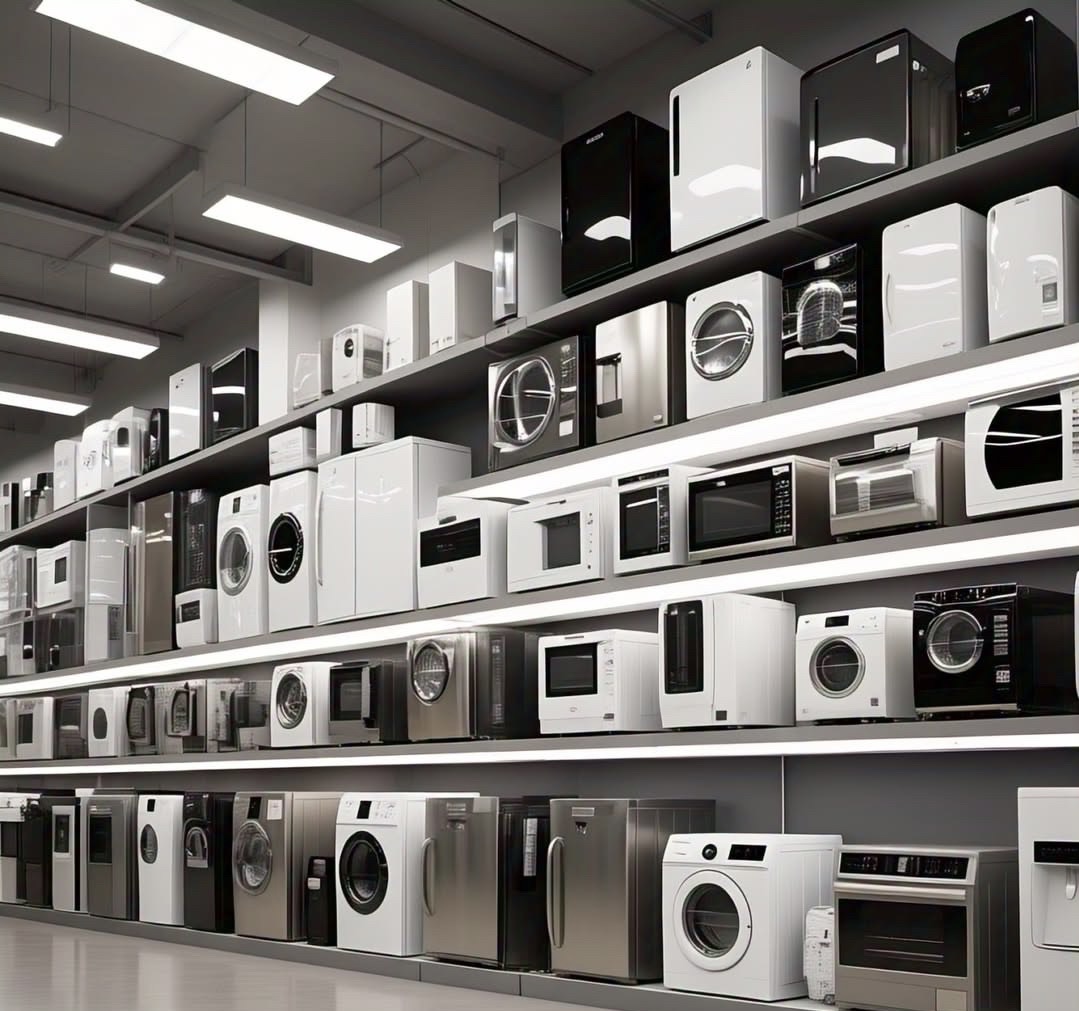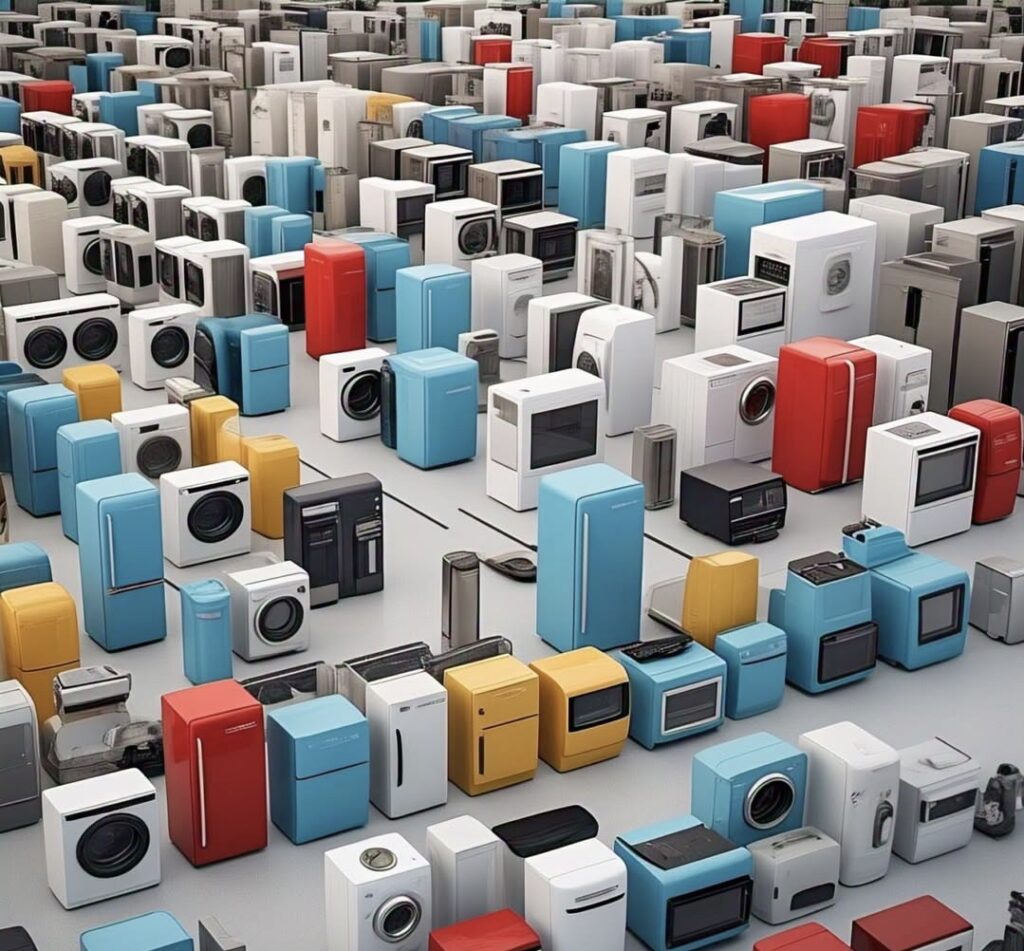Home Appliances
Home appliances have transcended their traditional role as mere tools for household chores, and have transformed into dynamic elements that redefine the way we interact with our living spaces. From grocery list-ready AI-powered refrigerators to allergy-fighting washing machines, today’s appliances are revolutionizing health, sustainability, and even mental health. This blog highlights the lesser-known innovations and cultural shifts driving the next era of home tech.
—

1. The Silent Revolution: How Appliances Became ‘Smart’ Allies
Gone are the days when a smart connected to Wi-Fi. The latest appliances act as seamless partners in daily life. Imagine an oven that not only preheats via voice commands but also adjusts cooking times based on humidity sensors, or a dishwasher that scans water hardness to optimize detergent use. These appliances learn from user behavior, provide predictive maintenance alerts (e.g., “Your fridge’s condenser needs cleaning next week”) and even integrate with health apps. For example, a blender can suggest recipes based on your fitness tracker’s nutrient goals.
Hidden impact:
– Time savings: Smart appliances save the average household 3+ hours a week by automating tasks.
– Energy intelligence: LG’s ThinQ refrigerators adjust cooling during off-peak energy hours, reducing bills by 15%.
– Security synergy: Samsung’s Family Hub fridge doubles as a smart home hub, syncing with cameras and door locks.
LONGWAY Kiger P2 1200 mm/48 inch Ultra
–
2. Sustainability: Appliances as climate warriors
Modern appliances are secret heroes in the fight against climate change. Brands like Bosch and Miele now design products with “circular economy” principles, using 95% recyclable materials. Heat pump dryers, for example, use 50% less energy than vented models, while induction cooktops reduce CO2 emissions by up to 30% compared to gas stoves.
Eco-innovations to watch:
– Water-saving magic: Dishwashers with nano-filtration systems reuse water over multiple cycles, reducing usage by 40%.
– Solar-powered solutions: Panasonic’s solar-integrated AC units use rooftop panels, reducing reliance on the grid.
– Composting 2.0: Companies like Whirlpool are prototyping built-in composters that turn food waste into compost in 24 hours.
–
3. Health and wellness: The hidden features you’re overlooking
Today’s appliances prioritize physical and mental health in surprising ways:
– Air Quality Guardian: HVAC systems with UV-C light technology neutralize airborne viruses, while Dyson’s air purifiers detect and trap pollen in real time.
– Allergen Annihilator: LG’s steamwasher eliminates 99.9% of dust particles, and Miele vacuums use HEPA filters to capture pet dander.
– Mental health booster: Smart lighting systems like Philips Hue sync with circadian rhythms, reducing insomnia, and Samsung’s ‘bespoke’ fridge offers customizable color panels to enhance the kitchen aesthetic.
Pro tip: Look for appliances with certifications like Asthma & Allergy Friendly® or Quiet Mark (for noise reduction).
Best Refrigerator Suggest
4. Space-saving magic: When small is mighty
Urbanization and smaller homes have fueled the demand for multifunctional, compact appliances:
– Invisible kitchen tech: Tesla’s solar roof-integrated appliances and Beko’s fridge-dishwasher combo maximize space.
– Portable powerhouse: June’s countertop oven uses AI to bake, air-fry, and dehydrate, taking up the space of five gadgets.
– Wall-mounted wonders: Heatworks’ tankless water heaters fit in cupboards, saving 10 square feet of space.
– 5. The future: hyper-personalization and the role of AI
The next area is devices that adapt to individual lifestyles: Home Appliances
– Mood-responsive technology: Imagine a coffee maker that brews a calming chamomile blend when your smartwatch detects stress.
– Food waste fighters: Samsung’s AI Family Hub tracks expiration dates and suggests recipes for perishable ingredients.
– Voice of the home: Google and Amazon are developing devices with empathetic AI that provide companionship for elderly users.
Ethical considerations: As devices collect more personal data, brands should prioritize encryption and user consent.
—
Conclusion: Choosing devices for a future-proof home
Selecting devices now requires weighing long-term value over upfront cost. Prioritize energy rating (see ENERGY STAR®), modular design for easy use
